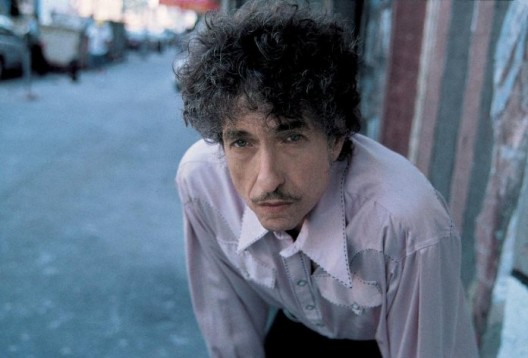

|
|
|
Folk/rock songwriter, singer. Born Robert Allen Zimmerman, on May 24, 1941, in Duluth, Minnesota. Driven by the influences of early rock stars like Elvis Presley, Jerry Lee Lewis, and Little Richard (whom he used to imitate on the piano at high school dances), the young Dylan formed his own bands, including the Golden Chords and Elston Gunn and His Rock Boppers. While attending the University of Minnesota in Minneapolis, he began performing folk and country songs at local cafés, taking the name "Bob Dylan," after the late Welsh poet Dylan Thomas.
In 1960, Dylan dropped out of college and moved to New York, where his idol, the legendary folk singer Woody Guthrie, was hospitalized with a rare hereditary disease of the nervous system. Dylan visited with Guthrie regularly in his hospital room; he also became a regular in the folk clubs and coffeehouses of Greenwich Village, met a host of other musicians, and began writing songs at an astonishing pace, including "Song to Woody," a tribute to his ailing hero. In the fall of 1961, after one of his performances received a rave review in The New York Times, Dylan signed a recording contract with Columbia Records. Released early in 1962, Bob Dylan contained only two original songs, but showcased Dylan's gravelly-voiced singing style in a number of traditional folk songs and covers of blues songs.
The 1963 release of The Freewheelin' Bob Dylan marked Dylan's emergence as one of the most original and poetic voices in the history of American popular music. The album included two of the most memorable 1960s folk songs, "Blowin' in the Wind" (which later became a huge hit for the folk trio Peter, Paul, and Mary) and "A Hard Rain's A-Gonna Fall." His next album, The Times They Are A-Changin', firmly established Dylan as the definitive songwriter of the '60s protest movement, a reputation that only increased after he became involved with one of the movement's established icons, Joan Baez, in 1963. While his romantic relationship with Baez lasted only two years, it benefited both immensely in terms of their music careers, as Dylan wrote some of Baez's best-known material and Baez introduced him to thousands of fans in her concerts. By 1964, Dylan was playing 200 concerts annually, but had become tired of his role as "the" folk singer-songwriter of the protest movement. Another Side of Bob Dylan, recorded in 1964, was a much more personal, introspective collection of songs, far less politically charged than Dylan's previous efforts.
| Date | Venue | City | State | Note |
|---|---|---|---|---|
| No Tour Dates Available | ||||